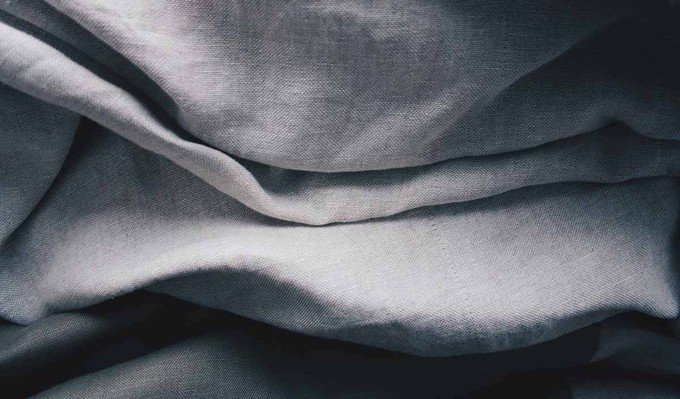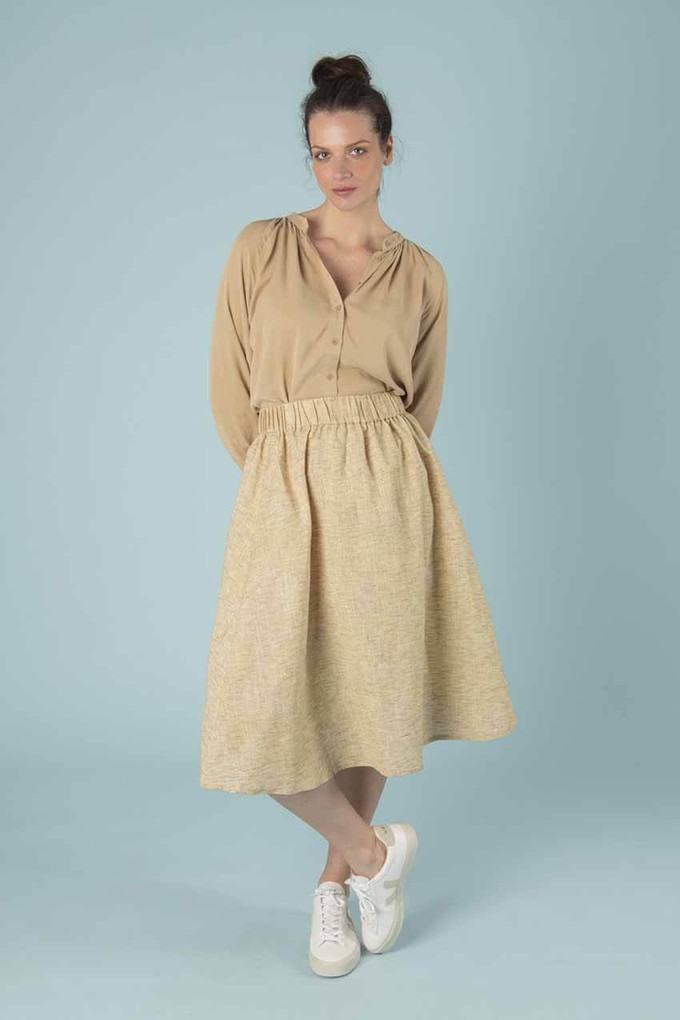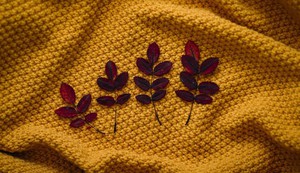- Clothes
- Bags
- Accessories
-
Inspiration
- Shoes
Is Linen Sustainable? Pros & Cons of Timeless Linen Fabric

From the most billowy skirts to those breathable tops that are a godsend in summer, linen fabric can work wonders.
With linen clothing dating back to 8000 BC and even being used as a currency by the Egyptians, this is nothing new.
However, you’ve probably heard about it a lot more over the past few years thanks to its eco-friendly properties. So, is linen sustainable?
Let’s find out together.
What is linen fabric?

Linen fabric is a natural material derived from the flax plant and resulting in lightweight but strong clothing.
While you can find it dyed, linen fabric naturally ranges across a neutral palette. The growing conditions of the flax plant can actually have a massive impact on the final result, which is why—as well as the famous ‘linen grey’—you can find linen fabric in ivory, tan, taupe, and ecru, too.
If you already have or are planning on introducing some of these garments to your wardrobe, be sure to read our guide on how to wash and take care of linen clothes.
What are the advantages of linen fabric?
Linen fabric hasn’t grown out of style in over 10,000 years because it comes with several advantages:
- Natural: it’s safe, hypoallergenic, and no chemical-heavy processes are involved in its production unlike with synthetic fibres;
- Biodegradable: when untreated, linen is one of the most biodegradable fabrics in the world;
- Strong: just like the sturdy flax plant that doesn’t even require insecticides, linen fabric is exceptionally sturdy and even moth-resistant, but it gets softer the more you wash it;
- Breathable and hygroscopic: linen fabric is actually perfect all year round! It can withstand high temperatures, absorb moisture without gathering bacteria, and, acting as an insulator, keep you warm in winter and cool in summer.
What are the disadvantages of linen?

The disadvantages of linen aren’t necessarily to be blamed on the fabric itself, but rather on how it can be produced and, for other aspects, on personal preference:
- Crinkly: linen fabric gets wrinkled very quickly. However, it’s becoming more and more common to wear linen clothing just like that instead of ironing it all the time or obsessing over it;
- Bleaching and dyeing: when linen fabric is bleached or dyed, it can lose its biodegradable properties. That’s why linen is more sustainable when untreated;
- Pesticides and chemicals: yes, we know we’ve said that the flax plant doesn’t need them, but, sadly, this doesn’t mean that some companies won’t use them anyway to speed up the process.
So, is linen a sustainable material?
Yes, linen is one of the most sustainable fabrics for several reasons. For example:
- The flax plant requires little water, especially when compared to cotton;
- It can thrive in harsh conditions;
- It’s a fast-growing plant;
- When untreated or naturally dyed, linen fabric is biodegradable;
- It’s an extremely durable fabric.
Obviously, the natural properties of the flax plant don’t automatically make all linen clothes sustainable.
To be sure to avoid pesticides, toxic dyes or unfair treatments of their garment workers, choose ethical brands that are transparent about their production methods or look for certifications like the Global Organic Textile Standard.
Finding the best sustainable linen clothes on Project Cece
Now that we’ve answered your initial question as to whether linen is sustainable (yes!), do you need any help finding the right linen garments for your wardrobe?
You’re in the right place!
At Project Cece we’ve gathered the collections of over 400 fair trade brands, including plenty of linen clothes.
Share our story
Related articles
How to Wash & Care for Your Linen Clothes
Don’t worry: caring for linen isn’t as hard as you think. There are, however, a couple of tips that you should definitely keep in mind when washing linen clothes.
What Are the Most Sustainable Fabrics? Oh, Sew Eco-Friendly!
‘Natural’ doesn’t always = ‘eco-friendly’! So, here’s a simple list of the most sustainable fabrics, why they’re good for the planet, and how to find them.
Project Cece is a platform that collects ethical fashion from vetted brands and shops in one place. Browse ethical fashion for women and men and find items that fit your style, budget and values!




